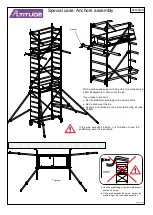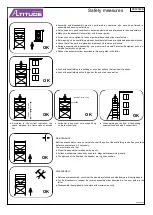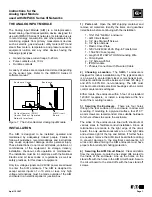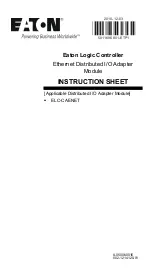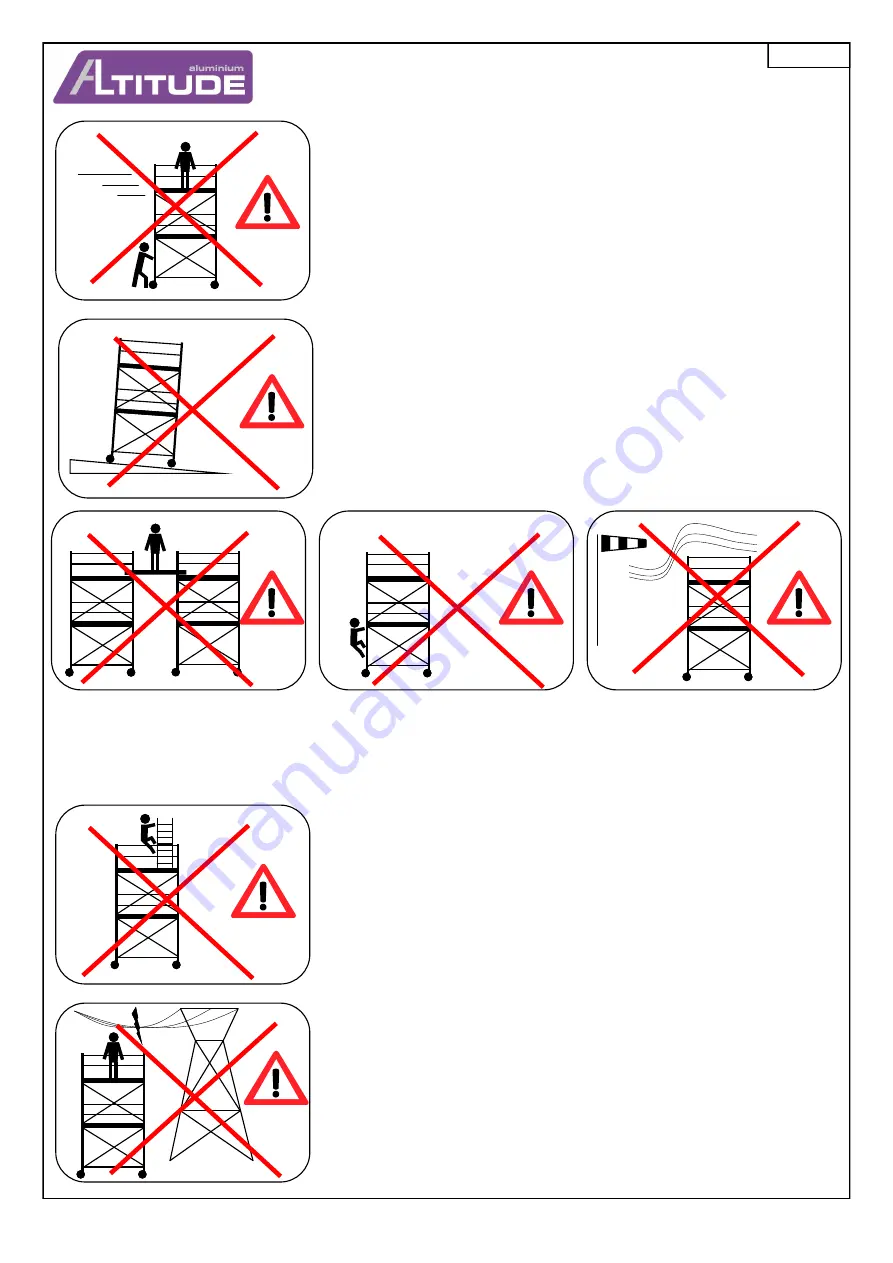
Safety measures
It is forbidden to move a scaffolding that has a rolling bridge, a crane or handling equipment.
the moving area must be free of obstacles.
The scaffolding can only be manually moved on solid ground (for a loose ground, plan a roll
out walkway), free of personnel or tools, with the space between supporting bars and the
ground being very low.
Do not move the scaffolding if the wind speed exceeds 45 kmph.
It is forbidden to jump on floors.
It is forbidden to create a bridge between a
rolling scaffolding and a building or any
other fixed structure.
It is forbidden to use planks as a floor.
Only go up or down the scaffolding
through the trapdoors in the floors.
Use the scaffolding when the wind doesn't
exceed 45 kmph.
The scaffolding must be secured at the
end of the day, by anchoring it or
disassembling it.
Beware of turbulences when near the
angle of a building or under a porch.
All 4 wheels must always touch the ground in order to support the work load and the
structure's own weight.
Maximum load on one wheel: 125 kg.
Make sure that support points can bear the load on the ground and that contact surface is
properly calculated according to the ground's type (on loose ground, use wedges under the
wheels and the supports, do not use hollow breeze blocks or any other non reliable wedges).
Assemble the scaffolding on a flat ground that is on a level.
It is forbidden to use a scaffolding that has not been vertically assembled (1% tolerance).
It is strictly forbidden to extend the height over the one mentioned in this user guide.
It is forbidden to set up a ladder or any other accessory on the floor to extend the scaffolding.
Make sure the work area is far from any working power line.
Page 19/20
Superior to
45 kmph
D040369B













